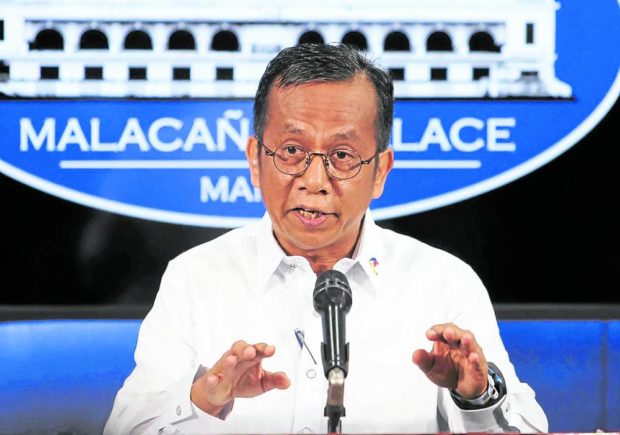EO reducing tariff on key commodities extended until Dec. 31, 2024

Socioeconomic Planning Secretary Arsenio Balisacan (INQUIRER file photo)
MANILA, Philippines — The proposed extension of Executive Order (EO) No. 10, which reduces the Most Favored Nation tariff rates for meat, rice, and corn, has been approved until December 31 next year, Socioeconomic Planning Secretary Arsenio Balisacan announced on Thursday.
The order was approved by President Ferdinand “Bongbong” Marcos Jr., he said.
“The board endorsed the proposed EO to extend the reduced Most Favored Nation tariff rates on selected commodities under EO 10 series of 2022, including pork, corn, and rice until December 31, 2024,” Balisacan said in a Palace briefing.
The EO was originally set to expire by yearend.
Balisacan said that the tariff rates for pork will remain at 15 percent for in-quota and 25 percent for out-quota.
The tariff rates for corn likewise remain at five percent for in-quota and 15 percent for out-quota, while the tariff rates for rice remain at 35 percent for both in- and out-quotas.
“The Neda [National Economic and Development Authority] board also approved the recommendation of the committee on tariff-related matters to modify the review period for the tariff rate and call from semestral to an annual basis,” Balisacan said.
“Meanwhile the tariff rates on pork, corn, and rice will be reviewed on a semestral basis,” he added.
The proposed extension of reduced tariffs, according to Balisacan, will help maintain an adequate supply of agricultural commodities.
This will also keep stable and affordable prices for the mentioned products.
“We’ll also be able to encourage alternative supply to diversify the country’s market sources and establish a forward-looking policy that will allow effective and timely response for possible supply and price shocks brought about by major challenges such as the worsening African swine fever, anticipated impact of the El Niño phenomenon, and continuous increases in commodity prices in the world market,” he said.
Balisacan, however, noted that the tariffs, while reduced, still remain high.
“The global prices, as we have said, continued to be elevated and, in fact, rising, so what the continued reduced tariff does is prevent the increases in the world market to be transmitted to our local markets at the expense of our local consumers,” Balisacan explained.
RELATED STORIES:
Import duty on natural gypsum, anhydrite removed
Palace OKs zero tariff on key inputs for construction materials production